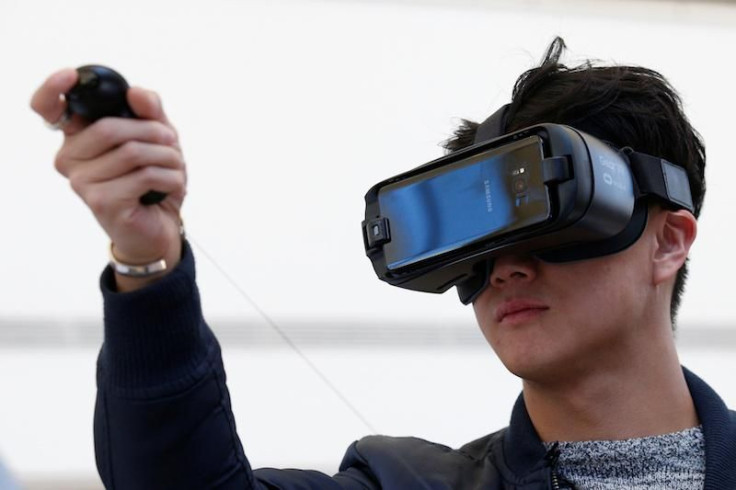Samsung Gear VR Gets Chromecast Broadcast Support

Virtual reality headsets tend to be harder to scale for group settings since the person with the headset is the only one who can see what's going on inside. But soon, Samsung Gear VR owners will be able to share what they're viewing with others.
In a post Wednesday, Oculus confirmed Gear VR will be getting Chromecast support. Users will simply need a device with Chromecast support and the Oculus mobile app. By enabling casting through the app, you'll be able to mirror what's on your headset onto a TV or display. The functionality especially can come in handy if you want to showcase a game or app to friends or family and have a TV nearby.
Read: Google Unveils New Standalone Virtual Reality Headsets At I/O 2017
Previously, Google previewed the functionality at its Google I/O developers conference earlier this year. The feature is slated to launch on its own Daydream platform and standalone headsets later this year though Oculus slightly beat Google to the punch. Chromecast isn't expected to come to Oculus Rift headsets, but the higher-end devices easily can be mirrored on a desktop display.
The update is also one of several social-friendly features that have come to Gear VR. Earlier this year, Gear VR got support for Facebook live streaming of VR sessions where Facebook friends could watch and comment on games or apps being used in VR. The headset previously received support for voice search and has gotten voice search functionality.
The updates come as mobile VR headsets from a variety of manufacturers look to bolster their features in coming months. While budget headsets like the Daydream VR and Gear VR have been able to survive with entry-level features and price points, companies have increasingly looked to push the envelope technologically with their successor headsets.
Read: Virtual Reality Park The Void Offers Unique Take On VR Experience
Google’s standalone Daydream VR headsets, which the company teased at I/O, are one way Google hopes to do so. The new headsets, which are expected to launch later this year, will be entirely standalone and won’t need to be paired to a smartphone or desktop computer. With situational tracking, the new headsets will also be able to track your location in three dimensions without needing external trackers to be mounted to a wall. Google has invested heavily in VR developers and studios, including Rick and Morty: Virtual Rick-ality and Job Simulator creator Owlchemy Labs.
Likewise, Microsoft also has teased headsets with similar functionality. These headsets, which will be coming from manufacturers like Dell, Acer and Asus, will have a relatively mid-range price point and feature situational tracking for higher degrees of interactivity.
© Copyright IBTimes 2024. All rights reserved.



















